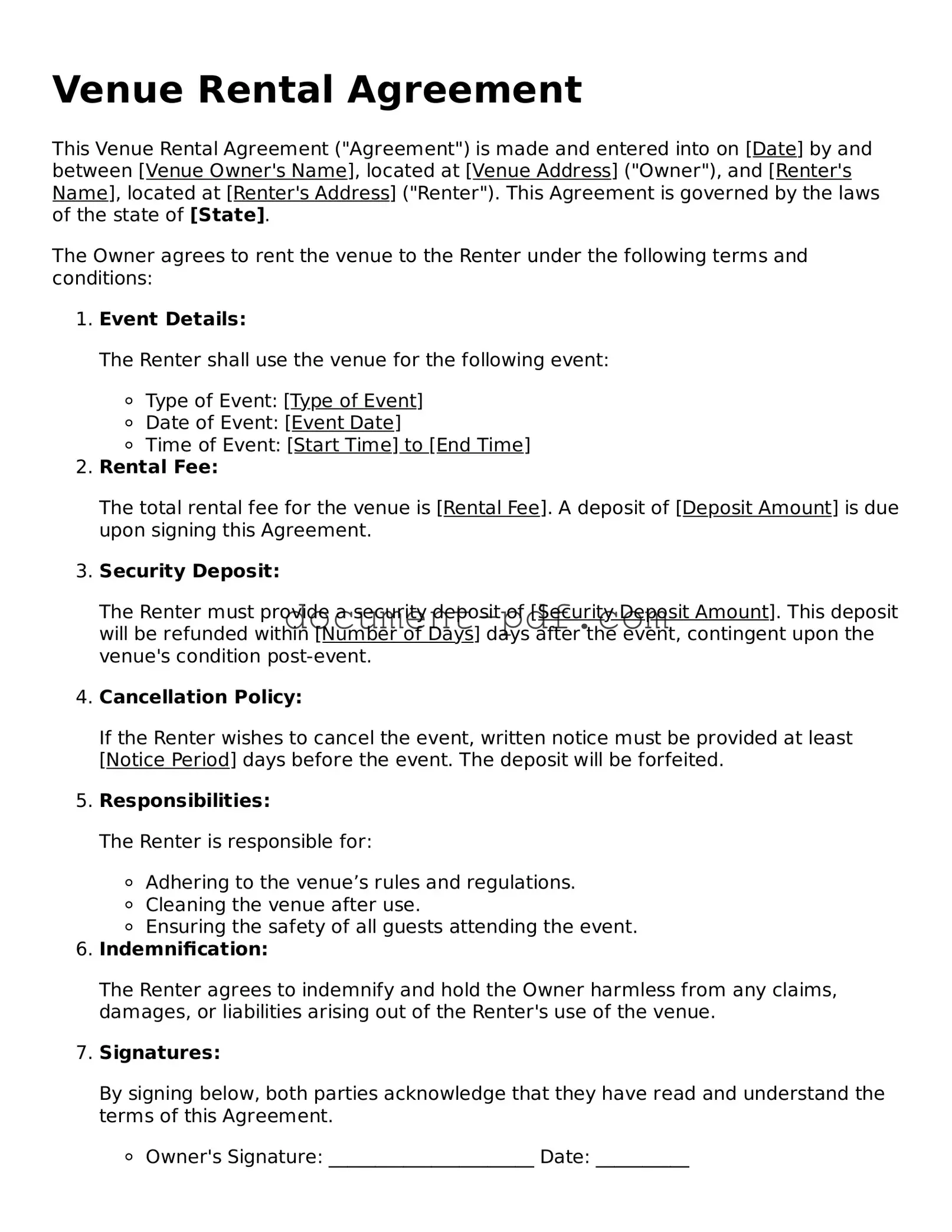A Facility Use Agreement is a document that outlines the terms under which an individual or organization can use a particular facility, such as a gymnasium or community center. Similar to a Venue Rental Agreement, it details the responsibilities of both parties, including rental fees, duration of use, and rules governing the facility. Both agreements aim to protect the interests of the venue owner while ensuring that the renter understands their obligations during the rental period.
When drafting a new rental agreement, it is important to ensure that both parties understand their roles and responsibilities. For a comprehensive guide, refer to our essential Lease Agreement template that simplifies the process and clarifies all necessary details.
An Event Contract serves a similar purpose, focusing specifically on the details of an event being held at a venue. Like the Venue Rental Agreement, it includes information about the date, time, and duration of the event, as well as any associated costs. Both documents help clarify expectations and responsibilities, thereby reducing the risk of misunderstandings or disputes between the event organizer and the venue provider.
A Catering Agreement is another document that shares similarities with a Venue Rental Agreement. This type of agreement specifically addresses the terms under which catering services will be provided for an event. While the Venue Rental Agreement focuses on the rental of the space, the Catering Agreement outlines the menu, pricing, and service details. Both documents work together to ensure that all aspects of the event are coordinated and that the needs of the client are met.
A Performance Agreement is relevant when events involve live performances, such as concerts or theater productions. This document outlines the terms under which performers will provide their services, similar to how a Venue Rental Agreement specifies the terms for renting the venue. Both agreements include details about payment, duration, and any specific requirements needed for the event, ensuring that all parties are aware of their commitments.
A Deposit Agreement may also be compared to a Venue Rental Agreement, as both often require an upfront payment to secure the reservation. The Deposit Agreement specifies the amount of the deposit, conditions for its return, and circumstances under which it may be forfeited. In the context of a Venue Rental Agreement, the deposit serves as a guarantee for the venue owner that the renter will adhere to the terms of the rental, thereby providing a layer of financial security for both parties.

